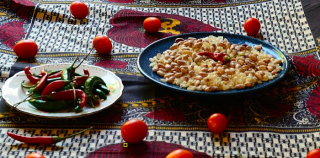Diet
Junk Food, Gut, and Brain
A Western diet can harm the gut within a matter of days.
Posted May 1, 2015
Over the years, a scientific consensus has been more or less reached about diet and mental health. People who eat mostly whole foods, meaning minimally processed foods for which you don’t need a label to tell you what is in it, tend to have better mental health. Why is that the case? It could certainly be the food itself and all the natural forms of vitamins and minerals and essential fats that keep the brain working in tip-top shape. I’m also convinced that a highly processed diet (which tends to be low in natural fibers and higher in refined carbohydrates and industrial fats) is not good for the microbes that populate our gut. I’ve written previous articles about exactly why the gut has an influence on moods and behavior:
Diet, Depression, and the Microbiome
The Gut-Brain Connection, Mental Illness, and Disease
But how does a Western “junk food” diet affect the microbiome exactly, and how quickly do these changes happen? A recent paper in Nature Communications gives us some insights. This paper compared African-Americans eating a standard American diet to South Africans eating a traditional diet. The traditional diet is much higher in fiber, particularly resistant starches that are known to provide food for the microbiome. The Western diet is higher in industrial fats, refined carbohydrates, and animal proteins.

American guts are dominated by Bacteroides, which come to the fore to digest proteins and fats, while African guts had mostly Prevotella and species that ferment carbohydrates and produce the short fatty acid butyrate (that is likely anti-inflammatory, anticancer, and is associated with better health). The American guts were more likely to have polyps and precancerous changes and had higher amounts of pathogenic bacteria like E coli and Acinetobacter.

In the study, researchers gave the Africans a Western diet for two weeks, and the African-Americans a traditional African diet for two weeks. Remarkably, the microbiome changed dramatically in just this short amount of time. The super healthy microbes that make butyrate increased 2.5 fold in the Americans on the African diet, whereas butyrate levels dropped by half when the Africans switched to the Western diet. In addition, the researchers saw greatly increased markers of intestinal inflammation (higher numbers of immune cells) while the inflammatory markers in the American guts dropped precipitously.
This experiment shows how rapidly a dietary change from a Western diet to a traditional African diet can alter the gut microbiome, changing it from inflammatory to anti-inflammatory state. It also shows just how quickly the reverse can happen. Switching to a vegetable-rich whole foods diet can make a dramatic difference in health within a matter of days, and junk food can harm the gut very quickly. Think about that the next time you have to choose between a quick salad and a trip through the fast food drive-thru.
Image Credit traditional African foods high in fiber
Image Credit ethyl butryate
O’Keefe, S. J. D. et al. Fat, fiber and cancer risk in African Americans and rural Africans. Nat. Commun. 6:6342 doi: 10.1038/ncomms7342 (2015).


